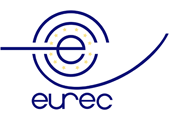menu
- Home
- National Information
- EC-Activities
- EUREC-Activities
- Legislation
- Training Materials
- Literature
- Events
- Newsletter
supported by:

Eurecnet - Training material details
Training material details
Experimente mit Menschen. Einführung in die Ethik der psychologischen Forschung
Author(s): Patry, Philippe
Document type: Book
Year: 2002
Pages: 155
Source: Publishing house: Verlag Hans Huber
Language(s): German
Classification
National background: AustriaCategory: EU Training Material for Research Ethics
Subject areas: Human experimentation
Content: Ethical theories; Important codes; Legal background; Normative reflections
Issues touched: Autonomy, respect, informed consent, subjects unable to consent, role of representatives Beneficence, non-maleficence, risk for the subject Justice, benefits/burdens, research without benefit for the subject, placebos/standard therapy; Protection of privacy, data protection, biological material Vulnerable groups, soldiers, prisoners, pregnant women, elderly people; Ethics committees, research protocols; deceit in psychological experimentation
Audience: research subjects; Scientists
Classification remarks: The book "human experimentation" is a short guide for psychological experimentation practice.
Estimation
Theoretical quality remarks: The book takes up the reflection on ethical principles of human experimentation, with a special focus on "deceit" and the apparent conflict with the principle of informed consent, relevant to psychological experimentation.Didactical quality: Didactically prepared material
Didactical quality remarks: The book is a short introduction into the ethics of psychological experimentation. The five chapters cover among others an introduction, methodological principles, ethical principles and the legitimacy of psychological experimentation.
Overall estimation: recommendable
Estimation remarks: The book gives a short and comprehensive overview of the ethical implication of human experimentation. The focus on psychological experimentation is a strength of the book, as it gives good practical advice for experimenters and research subjects. The didactical concept is however not very pronounced, and any additional information for students or teachers is missing.
